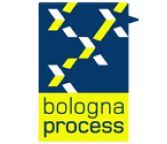CURRICULUM DEVELOPMENT
What has been changed?
One major element of the KZEMP/QCBS-03 project was to update the contents of initial teacher education in Kazakhstan towards more competence-based and student-centred direction. The needs analysis conducted during the first stage of the KZEMP/QCBS-03 project revealed that initial teacher education was considered theoretically solid but lacking practical aspects of pedagogy – the graduates were not strong in applying their knowledge in practice as new teachers in schools. This meant that teachers students should get more exposed to hands-on experiences applying various pedagogical approaches already during their studies in the university, and especially during their practicum periods in schools. Moreover, the curricula in initial teacher education should develop cross-curricular competences of future teachers, such as digital skills and literacy, inclusive teaching, implementation of interdisciplinary activities (through STEAM or CLIL), as well as research-based approach to teaching and continuous professional development. The Core Curriculum describes the essence of these competences providing a framework to be considered throughout the implementation of the new curricula.
The new curricula in initial teacher education compose of three components: the Compulsory Component, which is regulated by the State Standards and mandatory to all students in higher education regardless of their field of specialization, the Pedagogical Component, which includes the teaching practice and which is common for all ITE curricula, and the Subject Component, which includes the subject-related studies as well as the Diploma Thesis or Project work at the end of the studies. The competences of each curriculum are described following the competence levels of the National Qualifications Framework in Kazakhstan and the European Qualifications Framework as well as the Dublin descriptions, the national occupational standards in Kazakhstan, and the international competence frameworks in initial teacher education (e.g., examples from the benchmarked countries: FI, EE, PL, SG, CA).
The Pedagogical Component addresses topical educational issues such as support for various types of learners (inclusion) in versatile learning environments (physical, online, blended and hybrid), development of school students’ transversal future skills through active participation in the learning process, as well as the constructive alignment of pedagogical approaches, teaching and assessment methods, and the guidance of learning. The new curricula emphasize also more systematized, structured and goal-oriented pedagogical practice periods in schools throughout the programme in which teacher students gradually build their professional orientation and competences as novice teachers.
Renewed curricula and implementing universities – Contact the curriculum experts



